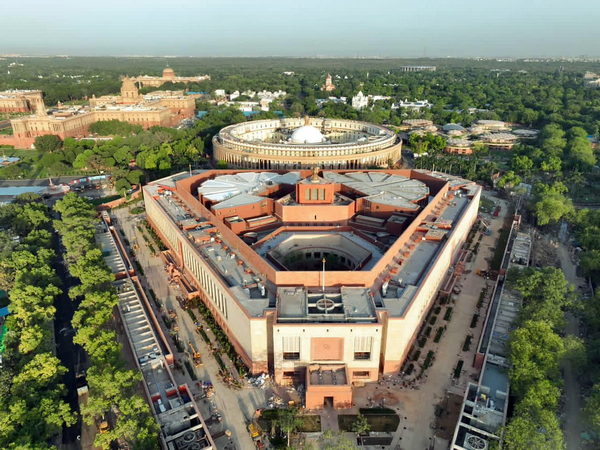The Bharatiya Janata Party (BJP)-led government will table the Waqf (Amendment) Bill, 2024, in the Lok Sabha on Wednesday, Union Minister for Parliamentary Affairs and Minority Affairs, Kiren Rijiju, announced on Tuesday. The bill will be presented after the Question Hour for consideration and passing, followed by an 8-hour discussion, which may be extended, Rijiju informed.
Earlier, Kiren Rijiju briefed BJP spokespersons about the Waqf Amendment Bill at the party’s headquarters, providing a comprehensive overview of its provisions. Rijiju emphasized that the bill aims to reform Waqf management, enhance transparency, and promote digitization, all while respecting the freedom of religious institutions.
“The bill does not interfere with the freedom of religious institutions,” Rijiju said. “Instead, it is designed to provide rights to those who previously lacked them, particularly in relation to the management of Waqf properties.”
Despite the government’s reassurances, the amendment has faced strong opposition, with critics labeling it as “unconstitutional” and accusing the BJP of trying to undermine Muslim rights. AIMIM chief Asaduddin Owaisi condemned the bill, calling it a “grave violation” of Articles 14, 25, 26, and 29 of the Indian Constitution. He further labeled it the “Waqf Barbaad Bill” (Waqf Destruction Bill) and questioned the rationale behind the support for the bill from BJP allies, including Nitish Kumar, Chandrababu Naidu, Chirag Paswan, and Jayant Chaudhary.
Opposition leaders have argued that the bill would give the government undue control over Waqf properties and undermine the autonomy of Muslim religious institutions. Samajwadi Party (SP) chief Akhilesh Yadav also expressed his opposition, accusing the BJP of attempting to interfere in all matters to consolidate power. “We are against the Waqf Board Bill because the BJP wants to interfere in everything. They want control everywhere,” Yadav stated.
The Waqf Amendment Bill was first presented in the Lok Sabha in August 2024, after which a Joint Parliamentary Committee, led by Jagdambika Pal, was formed for further consideration. The bill aims to amend the Waqf Act of 1995, addressing issues related to the regulation and management of Waqf properties. Among the proposed changes are updates to the definition of Waqf, improvements to the registration process, and greater use of technology in managing Waqf records.
The Waqf Act of 1995, intended to regulate Waqf properties, has faced criticism over the years for problems such as mismanagement, corruption, and encroachments. The amendment seeks to resolve these issues and improve the efficiency of Waqf boards across India.
(With ANI inputs)




















